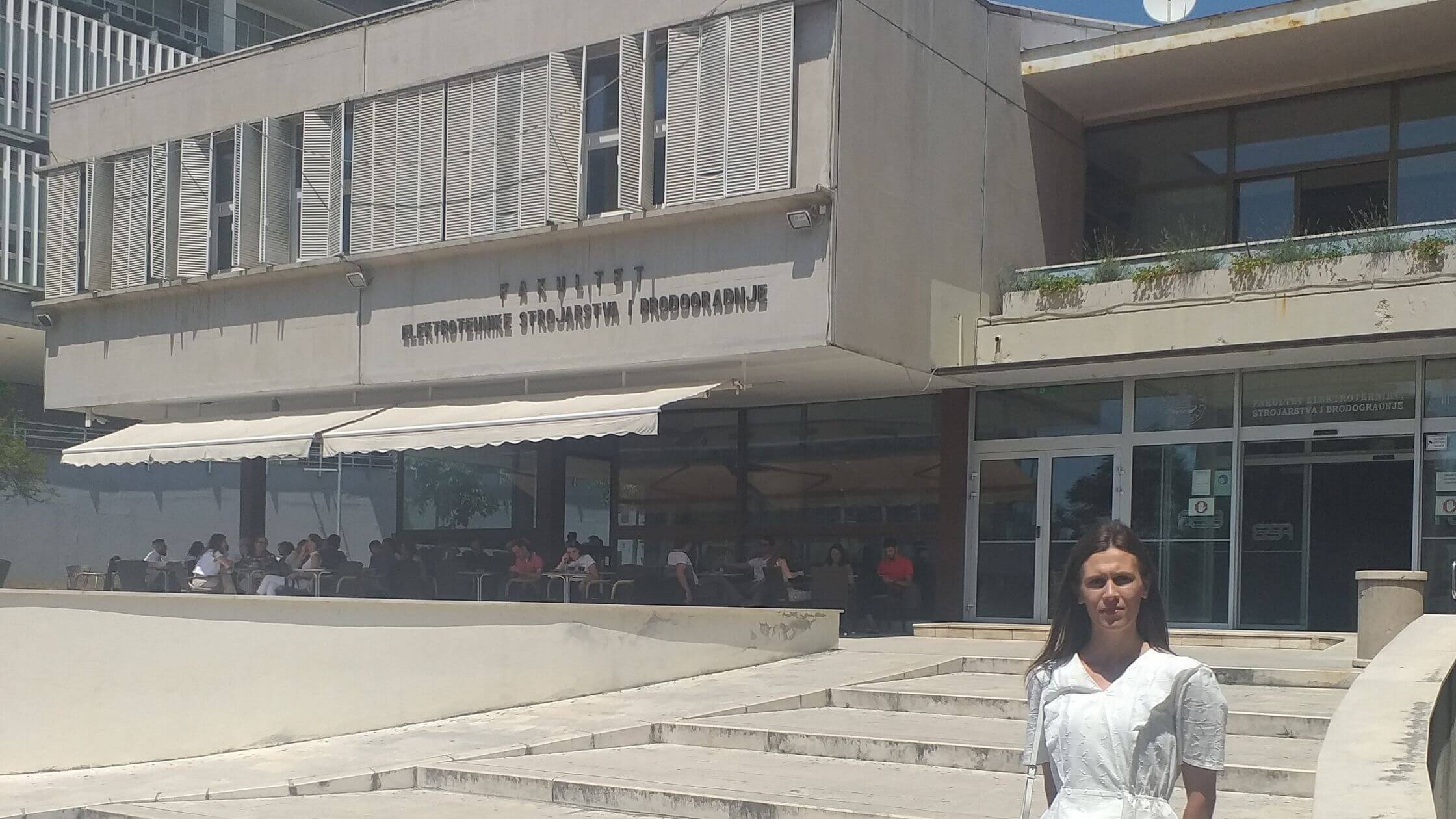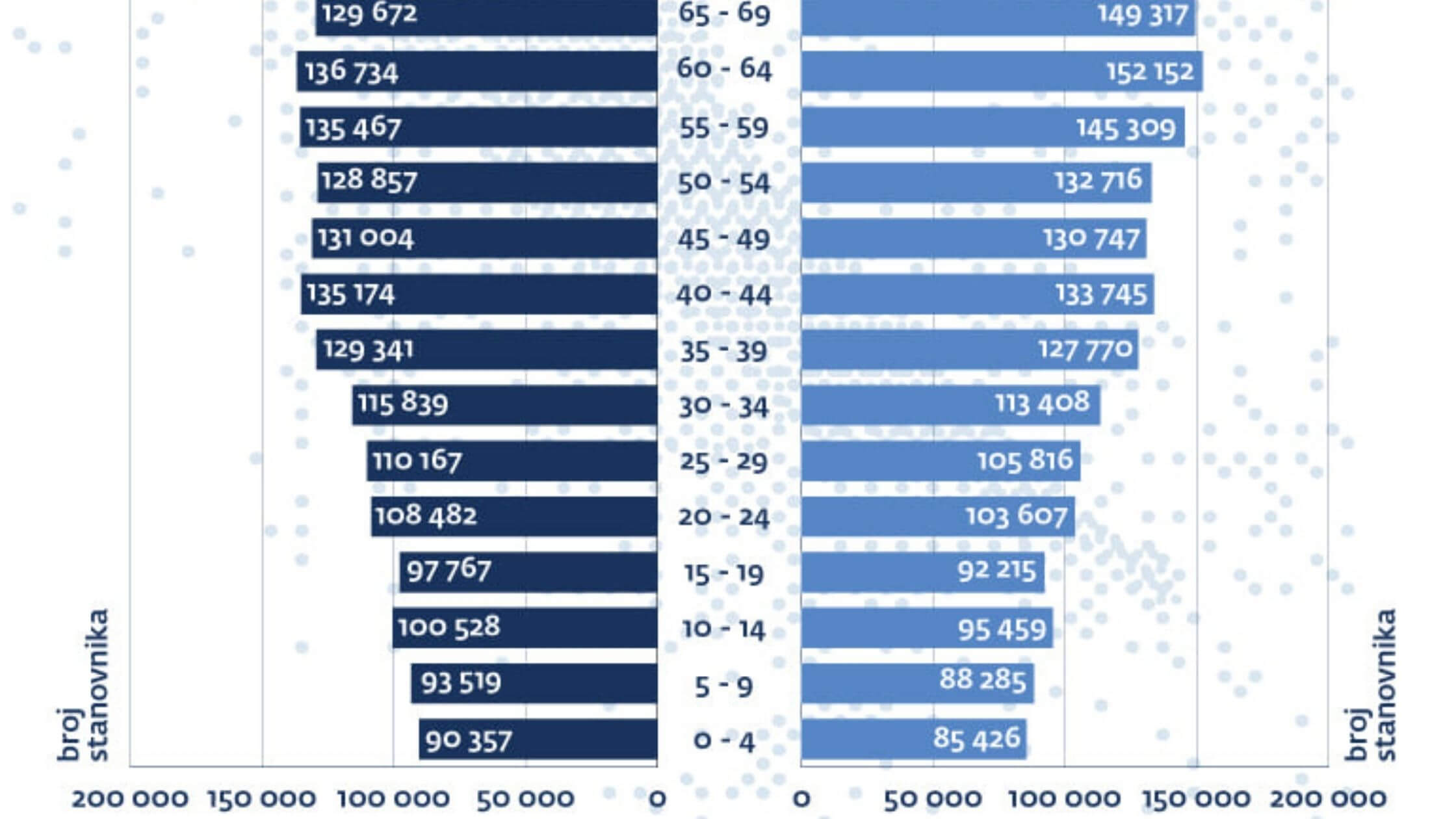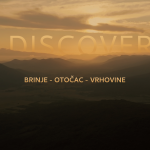I’d like Total Croatia News readers to warmly welcome two highly accomplished women, Ivona and Nikolina, in this new episode of Croatian Conversation. Ivona is a final year computer science student at the University of Split, while Nikolina is a full-stack developer working for an international telecommunications software firm.
We’ll be hearing their perspectives on working in the STEM industry, the changing attitudes towards women in STEM, and of leaving Croatia to seek greener pastures.
Read on as we chat about positive change, career options in Dalmatia, cheap cafeteria lunches, family influences, and more.

Gender equality in STEM industries is improving. (Image: Pexels)
Thank you both for doing this! How did you come to learn about software engineering and why choose a career, or study in this field?
N: Basically, from primary school, I was good at math and physics, and it was like “Okay. I don’t want to be a teacher”, and I always had problems with Croatian and with English, so I started looking more at this (technology) industry.
Also, I was deciding between medicine and engineering. When I was little, I said that I will be a kinesiologist, with diet, nutrition, and working out, but unfortunately, I didn’t have the marks (grades) for medicine.
And what about you Ivona, kind of the same outlook?
I: Actually, I was quite the opposite. I was more about languages. Yeah, but there was also a kind of, well, let’s call it a problem. I was raised in a family where everyone went to school related to some kind of IT (information technology).
My father always said that my mother is the reason why I didn’t do the same and did languages instead. She said going to high school for computer science or electronics, there were a lot of men, and she didn’t allow that. She told me that I would be the only girl in that school, and that might be a problem.
So, I didn’t know what the next step would be for me. Even in primary school, between languages and math, I was actually good at both so, I decided to go to gymnasium for French and English.
N: I learned Italian but forgot everything. Maybe now I can still understand something. But yeah, it was bad.
Right, so you (N) liked math and physics? Yeah. And you (I) were more into languages?
I: Yeah. I wasn’t sure what I wanted to do with my life (career wise). So, I just decided, “Oh, I’m good at languages”. I even studied Italian; it was cool, but when I went to gymnasium (high school), I figured out that it (languages) was not for me.
Why do you say that?
I: I don’t know, I figured out that I didn’t want to teach because I’m not someone who can work with a lot of kids. And I had some problems with English during gymnasium because my teacher was quite strict. Then I thought that’s (languages) definitely not for me, and the next question was, what’s next? So, I decided to try this (computer science).
It’s interesting that both of you say that you didn’t want to be teachers. Was that a traditional career path to follow?
N: Yes, sort of, but now I sometimes I think I could (be a teacher)? But then, it was a little bit worrying when you teach the same thing every year. I think you should always get some different tasks, always create something new. In teaching, I think that is difficult.
So, you like new challenges and not doing the same repetitive tasks all the time?
N: Yeah, definitely.

Teaching is considered a traditional career path for women in STEM. (Photo: Matija Habljak/PIXSELL)
Okay. And for you (I)?
I: From my side, it’s really hard to teach kids. It’s a huge responsibility and I kind of know that in Split, it’s really hard to get a job (teaching). So, that was also one big part in deciding why I have to go to college for five years (in IT), to find a job (in Split).
Right. And what about you N? Were you more certain that you would get a job within the engineering and tech industry?
N: Yeah, I think you have more options than a teacher.
Okay. And was your family supportive?
N: Yeah, they were super supportive because they did not go to college, just high school, and they pushed me to learn, to have a better life.
I: But it’s very interesting that now, my mother is now the biggest motivator. She always says “you can do it now that it’s different”.
That’s great!
I: Because she figured out that it’s not only a job for a man, so now she’s supportive. Before, I was also thinking of whether this (industry) was for me? I don’t know why I thought this way, maybe it’s old school? But I think (the attitude) is changing.
Right, different times
I: Women didn’t even have the same opportunities to go to school.
The conversation is interrupted by another intern from the marketing department, as we take a detour into the lives of university students in Split.
I: Would you like something from college? We have meals but only for students, there’s like a card and at the restaurant (University cafeteria), it’s 50% cheaper.
Interesting, what’s this about, like how much do you pay for lunch?
I: Something like 8 kunas? (Approximately €1.06)
What do you get for 8 kunas?
N: Sometimes bad stuff.
I: Meat, salad, but it’s like a meal. That means so you can choose every day you have, maybe five different dishes. And then students who live in another city or have more money. I’m from Kaštela, and I think I get around 160 kunas every month. I think this (initiative) is for all students in Croatia.
Oh cool, but let’s get back on track. So (N) you were saying you are actually an electrical engineering graduate, why did you go into programming?
N: From electrical engineering, I went to telecommunications and informatics (2-year master’s program) and applied for this job to learn more about programming because I liked the logic (behind programming) better.
I: Yeah, I also started electrical (engineering) for two years but didn’t feel like I’d learned anything. Now (with programming) I feel like I’m learning how to do something.
What about for you (I), why did you change industries?
I: Well actually, it’s not only about the job, I think to be hired, it’s also based on your projects or skills. Through studying computer science, I realized I could do something practical so that’s why I’m here (as an intern), because you can learn so much (from the internship).
I see, so computer science is more logical and hands-on.
I: The first and second year of programming was so hard for me. But basic software engineering was easier than pure theory, you get to do something. They give you the opportunity to learn and you also have a chance to ask, if you’re just waiting for someone to notice you *shakes head* you can’t.
N: Yeah, you do ask a lot (of questions)

Both talk about how they enjoy the logic and rationale behind coding and programming. (Image: Pexels)
There are also a lot of people who have an engineering degree, but then they end up working outside the industry, why do you think that’s the case?
I: Well, to be honest, some people just want a degree. It’s not important for them what the degree is, they just want it for now and maybe one day in the future decide if they will work in the field. A lot of my friends (who graduated) were asking if this was the right decision. But their problem is they don’t want to try (to get a job in the industry).
And if you try for one year or two years, however long, you have time to figure out if this is for you or not. I think that there are a lot of companies that are giving students these opportunities, but (students) are not taking them. I don’t know why.
Right. And what about you N, when you graduated? Do you find all your friends working in the field?
N: I think some are in teaching and some are still without jobs because they don’t have the right skills. So, I think they are trying to create some projects to put on their CV. Basically before (this job), I applied to different companies and I was worried about my 5 years spent (in college) and if I even knew anything, so this was what scared me (regarding jobs and the industry).
I see, also do you see yourself staying in this field?
N: Sometimes I feel that this is for me, sometimes I feel it isn’t. But more so I see myself staying. I think it will get better with more interesting work, but I feel I’m better here (in the software industry) generally.

Nikolina standing outside the faculty building after successfully defending her Master’s thesis. (Image: Nikolina Zelic/Personal album)
Yeah. And for you (I), do you feel as a woman in engineering any different?
I: No, I think everything is the same.
Great, so you see yourself exploring this more?
I: Yes, for now. I am really happy here. I don’t know, maybe I’m different. Because at first it was difficult but my colleague, he also helps a lot. A lot! When I have some problem with anything, I can ask him.
He also really encouraged me to try after doing the hackathon here (in December 2021). If I didn’t hear from someone who is working in this field for a few years, I don’t know, would probably say, I’m not sure (about staying in the field). But he really encouraged me to try and said that I will learn something.
Right, that’s really cool that you have supportive colleagues. I have another question about school, did you have a lot of female engineers in your courses?
I: Yeah, but when I was in the first year, they told us that five years ago, there were almost no women in the faculty.
What do you think is the split now?
Both: 50-50? Yeah, 50-50.
Wow, ok.
I: Well, I think it’s more women than men, actually. Now at least, but we can say 50-50.
N: Yeah. Maybe for telecommunications, I think there are more women.
Great, before we close, I have a final question, with the latest census results, have either of you thought of leaving Croatia? For better jobs or salaries?
N: Well, I love Canada so much.

Croatia has seen a population decline of almost 10% over the last decade, with the younger generation leaving to seek better opportunities overseas. (Image: DZS/Facebook screenshot)
Have you been before?
N: No, no, no. But I just love that country. I don’t know why.
Okay. Maybe something you in the media.
N: Yes, it seems much better and nicer, but it depends on the province? I just want to try, to see how it’s like working in another country, in any country. It can be in Germany, if not somewhere.
For you, Ivana, you seemed more hesitant to the idea?
I: Yeah, working and living here. Definitely, I can say I would like to (continue). My friends and family are here and when I step out of the house, there’s the sea right at my door. Well, I live in Kaštela, it’s a little bit different than Split right, it’s more casual but yeah, I really like it.
Cool, well thank you ladies for this chat, I feel I know more about the STEM industry and the Croatian education system in general!
For more, check our lifestyle section.











